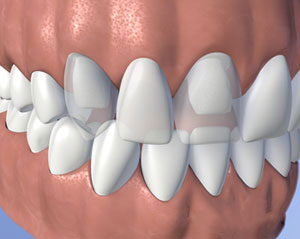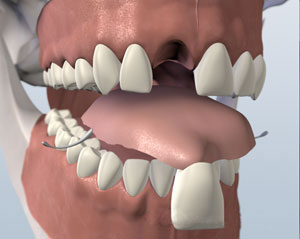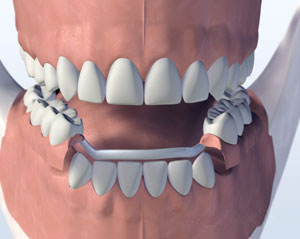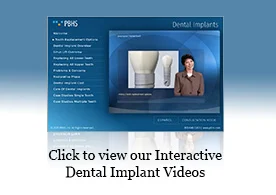Replacing Missing Teeth
Replacing Missing Teeth with Dental Implants: The Best Options for Tooth Replacement
Missing teeth can significantly affect your oral health, appearance, and confidence. Fortunately, there are several options to replace missing teeth, each offering its own benefits depending on your needs. While traditional options like dentures and dental bridges have been used for years, dental implants provide a modern, permanent solution to tooth loss. This article will explore various tooth replacement options and highlight the advantages of dental implants in restoring your smile.
Dental Implants: A Permanent and Comfortable Solution
Dental implants are widely considered the best option to replace missing teeth due to their durability, natural appearance, and ability to restore the function of lost teeth. A dental implant consists of a titanium post that is surgically placed into the upper or lower jaw. This post acts as an artificial tooth root, providing a strong foundation for a replacement tooth or dental bridge.
One of the key benefits of dental implants is that they help prevent bone loss, which can occur when teeth are missing. Without teeth to stimulate the jawbone, it begins to deteriorate over time, leading to further tooth loss and changes in facial structure. Implants integrate with the bone, preserving the shape and strength of your jaw, and preventing bone loss. They are the most comfortable and permanent solution for replacing lost teeth, offering a stable and long-lasting foundation for replacement teeth.
Tooth Replacement Options for Multiple Missing Teeth
For patients with multiple missing teeth, dental implants provide a versatile and effective solution. Rather than relying on removable dentures or a dental bridge that may only replace one or a few teeth, implants can be used to replace multiple teeth, even securing a full set of replacement teeth. Implant-supported bridges or dentures can provide greater stability and comfort than traditional options.
In cases where multiple teeth are missing, a full dental implant-supported bridge or denture can replace several teeth at once, without damaging existing teeth. This is particularly beneficial for patients who want a more permanent solution that looks and feels like natural teeth. For those with a full removable denture, implant-supported dentures offer improved comfort and security, especially when the existing teeth are missing due to tooth decay or gum disease.

Fixed Bridge
A fixed bridge is a connected set of replacement teeth. For support, it is cemented into position on top of the teeth adjacent to the empty space. The protective outer layer of these teeth is usually removed or ground down prior to attaching the bridge.

Flipper
A fragile, temporary and inexpensive solution is a removable plastic tooth with a plastic retainer, often called a “flipper”.

Metal Partial
A less fragile option is a removable partial denture cast in metal and plastic. It is held in place by wire clips. A removable partial denture can be removed and reinserted when required by the patient.

Denture
The most common solution, for people missing all teeth in one or both jaws are complete dentures. Some people adapt well to dentures. Others find them uncomfortable, even intolerable, because of differences in jaw size and shape.

Dental Implants
Dental implants are the most comfortable and permanent solution. They form a strong foundation for teeth and keep the jaw healthy and strong. Implants support individual replacement teeth or secure specialized dentures in place. Unlike bridges, no healthy teeth are damaged. Unlike most bridges, implants can last a lifetime. Implant-supported replacement teeth can be attractive, stable, and comfortable for almost any patient.
The Benefits of Dental Implants Over Traditional Dentures
Traditional removable dentures are a common option for patients missing teeth. However, they come with several drawbacks, including discomfort, the risk of slipping, and the need for constant removal and cleaning. Dental implants, on the other hand, offer a stable and long-term solution for replacing missing teeth. They are fixed in place and do not require removal for cleaning or maintenance, providing more convenience and comfort for the patient.
Unlike removable dentures or dental bridges, which rely on adjacent teeth for support, dental implants are self-supporting and do not compromise the health of the remaining teeth. This is especially important for patients who want to maintain the integrity of their natural teeth. Additionally, implants can be used to secure dentures or bridges, improving their stability and reducing the risk of discomfort or embarrassment.
Bone Loss and Dental Implants: Why They Are the Best Option for Preserving Jaw Health
One of the most significant challenges associated with missing teeth is bone loss. When a tooth is lost, the bone in the area where the tooth once was begins to deteriorate due to a lack of stimulation. This process, known as resorption, can affect the shape and structure of the jaw. Over time, bone loss may make it more difficult to place dental implants or other tooth replacement options.
Dental implants are the only tooth replacement solution that helps prevent bone loss. The titanium post of the implant integrates with the jawbone, providing the stimulation needed to maintain bone density. As a result, dental implants help preserve the natural shape of the jaw and prevent the need for further bone grafting or other surgical procedures.
Considerations for Choosing Between Dentures and Dental Implants
While dentures can be an affordable solution for replacing missing teeth, they often come with limitations in terms of comfort, stability, and appearance. For patients who have lost all their teeth or multiple teeth, a full removable denture can be a practical choice, but it may require adjustment and frequent relining to maintain a good fit.
For those who prefer a more permanent solution, dental implants are an excellent option. While dental implants may involve a higher initial cost, they offer long-term benefits, including improved function, comfort, and a more natural appearance. In addition, implants help preserve the health of the jawbone and adjacent teeth, which can reduce the need for future dental procedures.
Regular Dental Visits for Implant Maintenance and Oral Health
Regardless of the tooth replacement option you choose, regular dental visits are essential for maintaining your oral health and ensuring the long-term success of your dental implants or other tooth replacement solutions. After dental implant surgery, follow-up visits are necessary to monitor the healing process and ensure that the implants are integrating properly with the bone. Your dentist or dental specialist will provide guidance on how to care for your new teeth and keep them in optimal condition.
Maintaining good oral hygiene is particularly important for patients with dental implants. Brushing, flossing, and using an antimicrobial mouthwash will help prevent infection and ensure that the implant remains free from plaque buildup. In addition, regular visits to your dental specialist will allow them to check for any potential issues with the implants or other dental work and address them promptly.
Get the Smile You've Always Wanted
FAQ about Replacing Missing Teeth
What are the benefits of replacing missing teeth with dental implants?
Dental implants offer numerous advantages over traditional tooth replacement options. They provide a permanent, stable solution for missing teeth, helping to preserve the health of the jawbone and surrounding teeth. Unlike dentures or dental bridges, implants do not rely on adjacent teeth for support, preventing unnecessary damage to natural teeth. Implants also provide a more natural appearance and feel, improving both function and aesthetics.
How long do dental implants last compared to other tooth replacement options?
Dental implants are designed to last a lifetime with proper care. Unlike removable dentures or dental bridges, which may need to be replaced every 5-10 years, dental implants provide a long-term solution for replacing missing teeth. The longevity of dental implants is due to their ability to fuse with the bone, providing a secure and stable foundation for artificial teeth. With regular dental visits and good oral hygiene, dental implants can last a lifetime, making them a cost-effective option in the long run.
Can dental implants help replace multiple missing teeth?
Yes, dental implants can be used to replace multiple missing teeth. In cases where several teeth are missing, a dental specialist may recommend implant-supported bridges or dentures. These implants provide a stable foundation for multiple replacement teeth, offering greater security and comfort compared to traditional removable dentures. Implant-supported bridges can replace several missing teeth in a row, while implant-supported dentures can be used to replace a full set of teeth. This option ensures that you get a natural-looking smile and restores full function to your mouth.
How do dental implants compare to removable dentures in terms of comfort?
Dental implants are far more comfortable than removable dentures. While dentures can slip, cause irritation, and require removal at night, dental implants are securely anchored in the jawbone and do not need to be removed for cleaning or sleeping. Implants also help maintain the integrity of the jawbone, unlike dentures, which can contribute to bone loss over time. As a result, dental implants provide a more stable, comfortable, and long-term solution for replacing missing teeth.
What should I expect during the dental implant surgery recovery process?
The recovery process after dental implant surgery typically involves some swelling, bruising, and mild discomfort, which can be managed with prescribed pain medication. During the first 24-48 hours, you should rest, apply ice to the surgical area to minimize swelling, and stick to soft foods. The healing process progresses gradually, with the implant fusing to the bone in a process called osseointegration, which may take several months. Regular follow-up visits with your dental specialist are important to monitor the healing process and ensure the implants are properly integrating with the bone.
Dental Implants
Serving the Following NJ & Somerset County Areas:
Warren New Jersey • Watchung New Jersey • Middlesex New Jersey • Bernards New Jersey • Basking Ridge New Jersey
Berkeley Heights New Jersey • Piscataway New Jersey • Bridgewater New Jersey • Plainfield New Jersey • Branchburg New Jersey
New Brunswick New Jersey • Stirling New Jersey • New Providence New Jersey • Chatham New Jersey • Madison New Jersey
Boundbrook New Jersey • Martinsville New Jersey • Westfield New Jersey • Springfield New Jersey • Summit New Jersey

